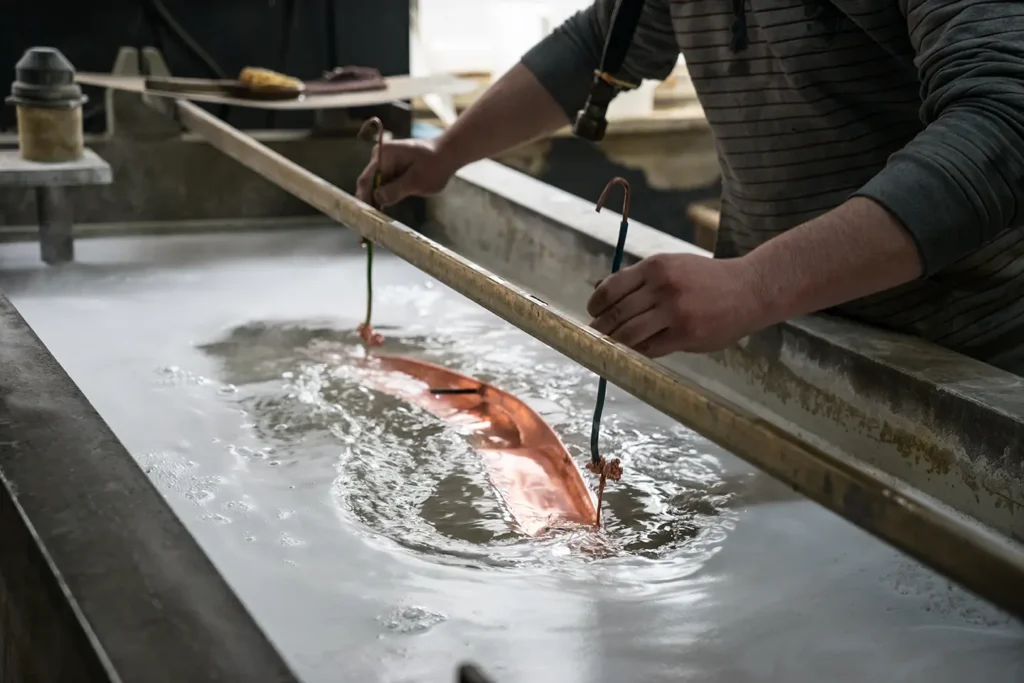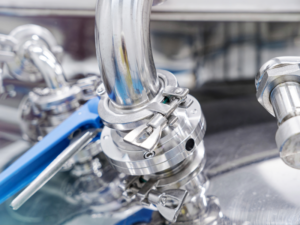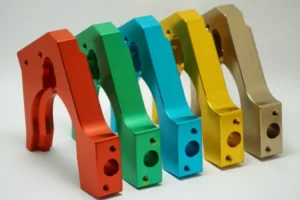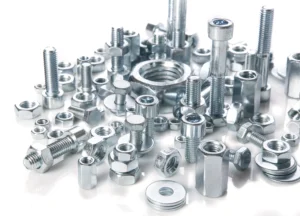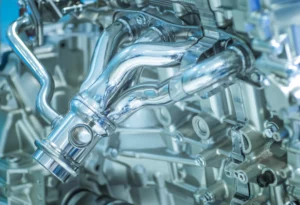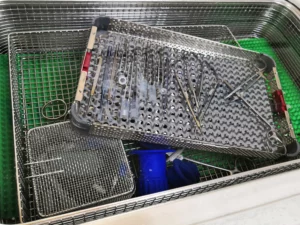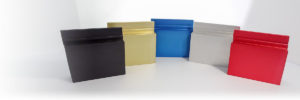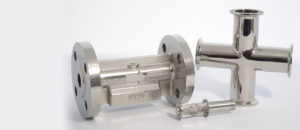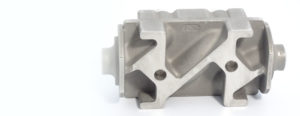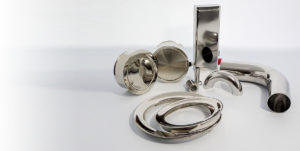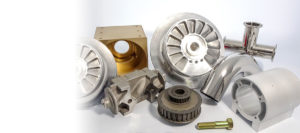Industrial finishing refers to the application of a final layer or treatment to the surface of a manufactured product, typically metal. This process plays a critical role in countless industries by significantly enhancing the properties of the base material. Industrial finishes can add a variety of features, including:
- Corrosion resistance: Protects metal from rust, wear, and tear, extending product lifespan.
- Improved aesthetics: Enhances the visual appeal of the product through color, texture, or shine.
- Increased conductivity: Improves electrical conductivity for applications in electronics and electrical components.
- Lubrication: Reduces friction and wear on moving parts.
- Biocompatibility: Ensures safety for use in medical devices.
Benefits of Industrial Finishing
Industrial finishing offers a multitude of benefits for manufacturers across various industries. Here are some key reasons why it’s crucial:
- Product longevity: By protecting against corrosion and wear, industrial finishing extends the lifespan of products, reducing replacement costs and downtime.
- Enhanced performance: Certain finishes can improve electrical conductivity, lubricity, or other functional aspects, optimizing product performance.
- Aesthetics and marketability: An attractive finish can elevate the visual appeal of your product, making it more desirable to consumers and potentially increasing sales.
- Regulatory compliance: Some industries have specific requirements for surface finishes on medical devices, food processing equipment, and other products to ensure safety and functionality.
Types of Industrial Metal Finishing Processes
There’s a wide range of industrial metal finishing processes available, each offering unique advantages. Here are some of the most common:
- Anodizing: Creates a protective oxide layer that enhances corrosion resistance and can be dyed for decorative purposes. Often used in aerospace, automotive, and electronics industries.
- Electroplating: Deposits a thin layer of another metal onto the surface, improving conductivity, wear resistance, or aesthetics. Applications include electronics, automotive parts, and jewelry.
- Electropolishing: Removes a microscopic layer of material, resulting in a smooth, bright surface finish ideal for medical devices and equipment requiring a sterile finish.
- Passivation: Forms a thin oxide film on the surface to improve corrosion resistance for certain metals like stainless steel, commonly used in medical devices and food processing equipment.
- Chemical Film: A conversion coating process that creates a thin, invisible layer for enhanced corrosion resistance on aluminum, often used in construction materials and electronics.
- Vacuum Pump Decontamination: A specialized cleaning process to remove contaminants and ensure optimal performance in vacuum systems critical for semiconductor manufacturing and scientific research.
- High Purity Cleaning: Meticulous cleaning process using high-purity chemicals and DI water to meet stringent requirements for cleanliness in critical applications like medical devices and electronics.
Choosing the Right Finishing Process
The ideal finishing process for your product depends on several factors, including:
- The base metal: Different metals respond better to specific finishing techniques. For instance, anodizing is well-suited for aluminum, while electroplating offers more versatility for various metals.
- Desired properties: Consider the functionality you aim to achieve (corrosion resistance, conductivity, etc.). Some finishes excel in specific areas.
- Application and environment: The product’s intended use and exposure conditions will influence the choice. For example, parts used outdoors may require a more robust corrosion-resistant finish.
- Regulatory requirements: Certain industries may have specific finishing requirements to ensure safety and functionality. Understanding these regulations is crucial.
- Budgetary considerations: The cost of each process varies. Finding the right balance between functionality, aesthetics, and cost is important.
Industries That Benefit from Industrial Finishing
A vast array of industries rely on industrial finishing to enhance their products. Here are a few examples:
- Aerospace: Metal components in airplanes require superior corrosion resistance to withstand harsh weather conditions and high altitudes.
- Automotive: Finishing processes improve appearance, durability, and weather resistance of car parts, extending lifespan and enhancing visual appeal.
- Electronics: Ensures conductivity, corrosion resistance, and heat dissipation in electronic components for optimal performance and reliability.
- Medical Devices: Biocompatible finishes are essential for safety and functionality in medical equipment, preventing patient complications.
- Machining and Fabrication: Finishing protects parts from corrosion and enhances aesthetics for various applications in construction, plumbing, and hardware.
By understanding the importance and applications of industrial finishing, manufacturers can ensure their metal parts are well-equipped to meet the demands of their specific industry. Careful selection of the right finishing process can significantly enhance product quality, functionality, and longevity.
AMF Technologies: Your Partner in Industrial Finishing
At AMF Technologies, we understand the critical role that industrial finishing plays in the success of your products. As a leading provider of metal finishing solutions, we offer a comprehensive range of services to ensure your metal parts achieve the desired aesthetics, functionality, and longevity. Our team of experts will work closely with you to understand your specific needs and recommend the most suitable industrial finishing process for your application. Contact us today to discuss your finishing needs and explore how our services can elevate your products.
